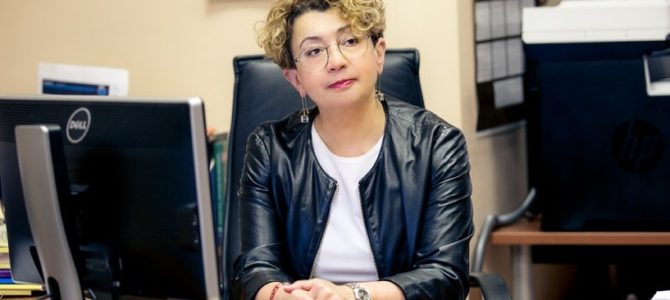
Articles on this web page and the Lithuanian Jewish Community’s facebook section about citizenship for Litvaks have been the subject of great interest. Thousands of people around the world are reading everything written about citizenship. Lithuanian Jewish Community chairwoman Faina Kukliansky therefore would like to talk about why this issue is of such tremendous importance to Litvaks.
Many Litvaks died during the Holocaust and they are now scattered around the world. These people identify themselves with Lithuania, but have lost Lithuanian citizenship. Truly this is not just a moral issue, but also a legal one. We are talking about Jews who survived the Holocaust, and truly no one rescinded their citizenship in the concentration camps. No one sent them to the concentration camps with their passports. They were deported, isolated and murdered as Jews, not as citizens of Lithuania. Of those who were deported to Siberia, likewise no one asked for their Lithuanian citizenship, but deported them because they owned property, or were firefighters or volunteer soldiers. Thus arises the legitimate question: when did these people lose Lithuanian citizenship, when was it taken away from them?
Reading the laws of restored Independent Lithuania, we see Jews were deprived of Lithuanian citizenship during in already independent Lithuania, when the law on citizenship was adopted. Many Jews who survived the war and the Holocaust went to their ethnic homeland, Israel, Jews who consider themselves citizens of Lithuania but who, when the Republic of Lithuania law on citizenship was adopted in 1991, which clearly states Lithuanian citizenship is lost upon acquisition of citizenship of another state, lost that citizenship.
The Lithuanian constitution says Lithuanian citizens have the right to hold one citizenship, but that there are exceptions, which should be logical. My understanding is that citizenship was stripped from those from whom no one else had rescinded it in 1991 after Lithuanian independence was restored. Therefore I say nonsense was truly accomplished in the legislative process and the requirements of those laws could not correspond to the legitimate aspirations of these people who believed in the freedom of Lithuania, because they were immediately stripped of Lithuanian citizenship. Of course one might ask why they didn’t renounce the citizenship they held, but the lives of people don’t always fit neatly into legal regulation. People worked their entire lives in another country, they were waiting for or already receiving their pensions, they have rights and benefits, so why now after so many years since they were accepted by the USA, Argentina, South Africa–who wouldn’t let them perish and saved their lives–why now should they renounce citizenship in these countries, when their children live there, but have never renounced Lithuanian citizenship and want to have it? The same goes for others who have not taken citizenship in another country although they might live in the USA or Argentina. These people have to go to the Lithuanian Migration Department and ask for a Lithuanian passport to be issued to them, although they have never had any other citizenship. But our laws demand people already have citizenship in another country and only then can they apply for a second citizenship, in the Republic of Lithuania. There are many loopholes and vague parts in the law which, according to the principles of good public administration and the doctrine of law, should be interpreted to the benefit of the individual. The law defends the person, not the public servant, but it is happening the other way around.
Take the last version of the law adopted in 2010 and in force until now. It was adopted so that the legal “mechanism” would be clearer, so that a wider circle of people would be eligible for Lithuanian citizenship–all of this is contained in the explanatory note to law which was signed by president Valdas Adamkus. Public servants began to implement the law differently and people could no longer understand who has the right to citizenship and who doesn’t. The case law wasn’t complete and only covered a narrow range of situations, such as Soviet officers who left Lithuania for the Soviet Union in 1990, or who moved from Lithuania to elsewhere in the Soviet Union after 1945. This gave rise to a flawed implementation of the law which, instead of making the procedure easier for people, made it extremely difficult. So the law had to be changed.
I believe the president signs the law adopted by parliament in June and the law will come into force, because this time the parliament was very unanimous in voting “for.” Now we await the president’s signature and the adoption of guidelines for the implementation of the law, so that people will understand who has the right to restore citizenship in the Republic of Lithuania.
This isn’t a Litvak problem. This is a problem for everyone who has the right to Lithuanian citizenship. Litvaks living in South Africa and Israel are interested in restoring citizenship. This issue is not connected with restoration of property, because the terms and deadlines set in law have passed, and the Supreme Court, the Constitutional Court and the European Court of Human Rights have all issued the same findings on the matter. We will see what sort of proposals we receive from the Government on how people can enjoy their rights and restore their property. Restitution is not connected with citizenship in any [other] state, even in neighboring Latvia citizenship is without significance. Under Lithuanian laws a citizen who is not a citizen of Lithuania has no rights to restoration of property.
It’s much easier to avoid mistakes before making them than to correct them later.

